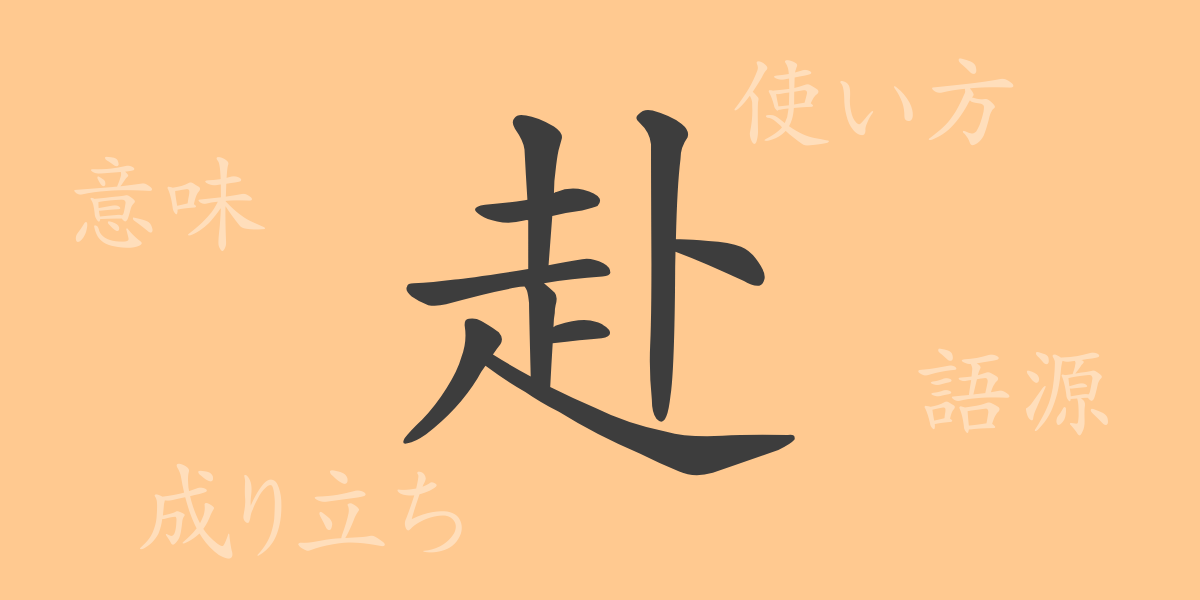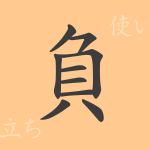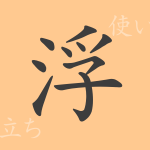The meaning of a single kanji character is deeply rooted in its form and history. The commonly used Japanese kanji “赴(ふ, fu)” is no exception. In this article, we will delve into the origins, meanings, usage, readings, and idiomatic expressions of “赴(ふ, fu).” By exploring a single kanji, let’s rediscover its charm while touching on the culture and history behind the words.
The Origin of 赴(ふ, fu)
The kanji “赴(ふ, fu)” can trace its origins back to ancient Chinese oracle bone script. Originally derived from a pictogram representing a person’s foot, it came to signify the act of moving in a specific direction. Over time, its form evolved into the current “赴(ふ, fu).” The dynamic imagery of this kanji can be understood from its etymological roots.
Meaning and Usage of 赴(ふ, fu)
“赴(ふ, fu)” means “to head towards a place or situation.” It particularly signifies the act of willingly going somewhere with a purpose or reason. This kanji is often used as a verb, for example, “会議に赴く(かいぎにおもむく, kaigi ni omomuku)” meaning “to attend a meeting” or “試合に赴く(しあいにおもむく, shiai ni omomuku)” meaning “to go to a match.” It is used when heading to official or important places.
Readings, Stroke Count, and Radical of 赴(ふ, fu)
The kanji “赴(ふ, fu)” has various characteristics, including readings, stroke count, and radical.
- Readings: The on’yomi (音読み, on’yomi) is “フ(fu),” and the kun’yomi (訓読み, kun’yomi) is “おもむ.く(omomuku).”
- Stroke Count: It has a total of 9 strokes.
- Radical: The radical is “走(はしるへん, hashiru hen)” which means “to run.”
Idioms and Proverbs Using 赴(ふ, fu)
Idioms and proverbs containing “赴(ふ, fu)” richly expand its meanings and usage. For example, “赴任(ふにん, funin)” means “to go to a designated place to take up a post,” and “情に赴く(じょうにおもむく, jou ni omomuku)” means “to act according to one’s emotions.” Additionally, the proverb “泰山鳴動して鼠一匹赴かず(たいざんめいどうしてねずみいっぴきおもむかず, taizan meidou shite nezumi ippiki omomukazu)” sarcastically refers to making a big fuss and achieving nothing.
Summary of 赴(ふ, fu)
The kanji “赴(ふ, fu)” carries the meaning of “heading towards a destination,” which can be inferred from its form and etymology. The movement and progression indicated by this single character are often used in our daily lives and business scenes. Through idioms and proverbs, “赴(ふ, fu)” enables richer expressions and is one of the kanji that showcases the depth of the Japanese language. We hope this article has helped you appreciate the diverse charm of “赴(ふ, fu).”

























